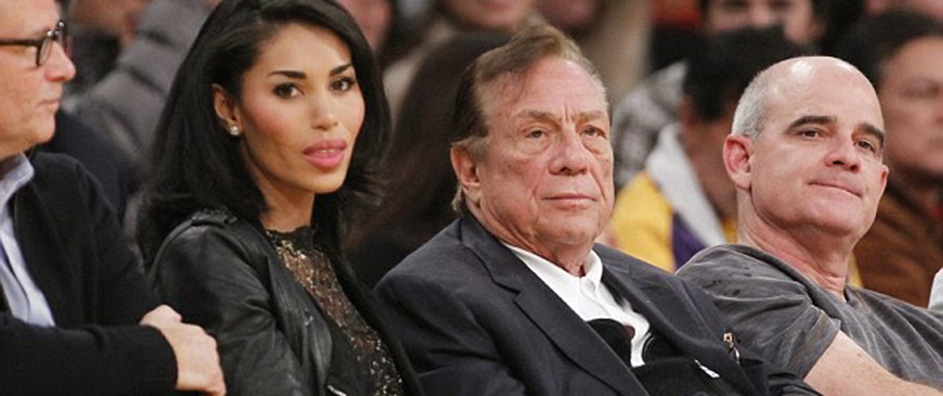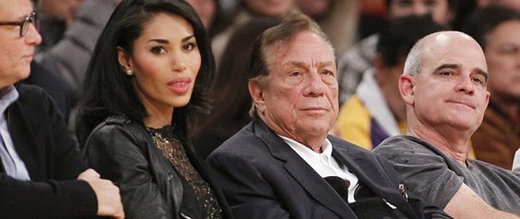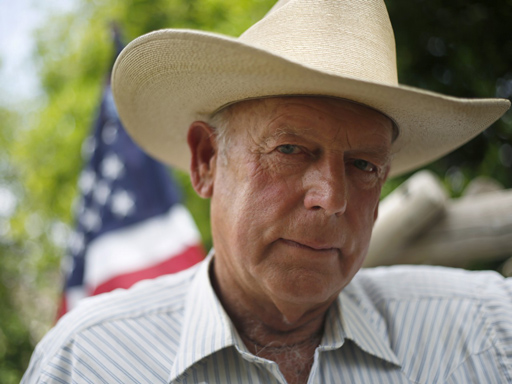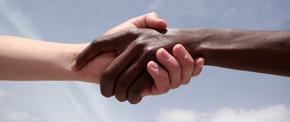The views expressed in our content reflect individual perspectives and do not represent the authoritative views of the Baha'i Faith.
 This is Part 1 Sterling, Bundy and We Are One :
This is Part 1 Sterling, Bundy and We Are One :
In America, we have one major, vital and deeply challenging issue – race.
A few hundred years of slavery does tend to produce lasting difficulties, of course. Historically, we haven’t come that far from a completely and legally segregated society, which existed in full view of everyone not so long ago.
Less than fifty years have passed since I spent a year traveling through the American South, visiting Baha’i communities trying to integrate in the face of Jim Crow laws. Because of Baha’u’llah’s message of the oneness of humanity and the elimination of all prejudice, many of the Southern Baha’i communities I encountered had attracted large numbers of predominantly African-American members. I’m white, so I didn’t have to face the enormous racism I saw the black Southern Baha’is endure – but during that year I was spit on, cursed, jailed, beaten by policemen who openly wore Ku Klux Klan insignia on their uniforms, and then shot at while standing on the porch of a Baha’i center in Alabama. I only committed one crime – hanging out with black people. Those incidents convinced me that our American ideal of E Pluribus Unum – “out of many, one” – had a long way to go before it became a reality.
During the past few weeks, we’ve witnessed two high-profile, media-intensive racism outbursts in the United States. Cliven Bundy, the anarchist, gun-toting Nevada rancher, and Donald Sterling, the Los Angeles real estate mogul and basketball team owner – both elderly Caucasian millionaires whose ugly views of dark-skinned people seem to come from some distant troglodyte era – emitted unacceptable racist views. Great uproars ensued.
The near-unanimous condemnation of Bundy’s and Sterling’s overt racism has cheered millions of people who don’t think of themselves as bigots or racists. A cacophonous hue and cry has gone up from commentators everywhere, assailing Sterling’s and Bundy’s comments, the views behind them and the assumptions behind the views. At a Los Angeles Clippers playoff game the other night, the crowd deafeningly chanted “We are one!” to counter the owner’s bigotry. All this feels wonderful, right?
Sure — but I’d like to suggest that we shouldn’t get too comfortable with this rousing public response to racism. Yes, it’s a joy to hear a huge, multi-racial crowd loudly express their unity; and most of us can probably agree that racism is bad and racists need some serious remedial training in human relations, basic biology and common decency. But those sentiments shouldn’t mask the fact that our culture still has huge, largely unresolved and deeply-ingrained racist tendencies.
We have to recognize those tendencies before we can remedy them.
So let’s look at some new research that just appeared on the subject, just to check on where we are as a country. In March of 2014, CBS News polled white Americans on their attitudes toward black people. The polling results show positive news — that American racist attitudes have progressively waned over the past 40 years. But they also tell us that just because they’ve diminished doesn’t mean all racism has gone away. The CBS poll found that:
- 21% of whites say they would oppose having a close relative marry a black person, and the same percentage of whites say they would not want to live in a place where half the neighbors are black.
- 40% of white Americans say “whites are more hard-working than blacks.”
- When asked why they think blacks, on average, have worse jobs, income and housing than whites, almost half of all whites (45%) say that “most blacks don’t have the motivation or willpower to pull themselves out of poverty.”
- 28% say it’s okay to discriminate when selling a home.
- A third of whites (34%) agree with the statement “blacks shouldn’t push themselves where they’re not wanted.” (The Upshot, New York Times, 30 April 2014)
Even in a cultural atmosphere where overt racism has become completely unacceptable and occasionally criminal, these frightening numbers have something important to tell us – racism is not dead. We do not live in a “post-racial” society. We have not conquered prejudice – far from it.
Have we made progress? Yes, slowly. Have we eliminated racial prejudice, racial bias and racial hatred from our midst? Absolutely not – the cancer of racism still eats away at our society’s vital organs.
So let’s not forget that the recalcitrant racist opinions of throwbacks like Sterling and Bundy were mainstream views in America not that long ago. As the polls show us, those ignorant prejudices persist in millions of people. They don’t disappear magically — it takes generations to understand, address and begin to solve the racist inheritance of a brutal post-slavery legacy.
The Baha’i teachings directly address America’s racist past and present, confronting the issue head-on and asking us to allow no prejudice or separation between us and any other fellow human being:
God has created the world as one — the boundaries are marked out by man. God has not divided the lands, but each man has his house and meadow; horses and dogs do not divide the fields into parts. That is why Baha’u’llah says: “Let not a man glory in that he loves his country, but that he loves his kind.” All are of one family, one race; all are human beings. Differences as to the partition of lands should not be the cause of separation among the people.
One of the great reasons of separation is color. Look how this prejudice has power in America, for instance. See how they hate one another! Animals do not quarrel because of their color! Surely man who is so much higher in creation, should not be lower than the animals. Think over this. What ignorance exists! White doves do not quarrel with blue doves because of their color, but white men fight with dark-colored men. This racial prejudice is the worst of all. – Abdu’l-Baha in London, p. 55.
Read the next article in the series: E Pluribus Unum and Racial Justice in America


















Comments
Sign in or create an account
Continue with Facebookor